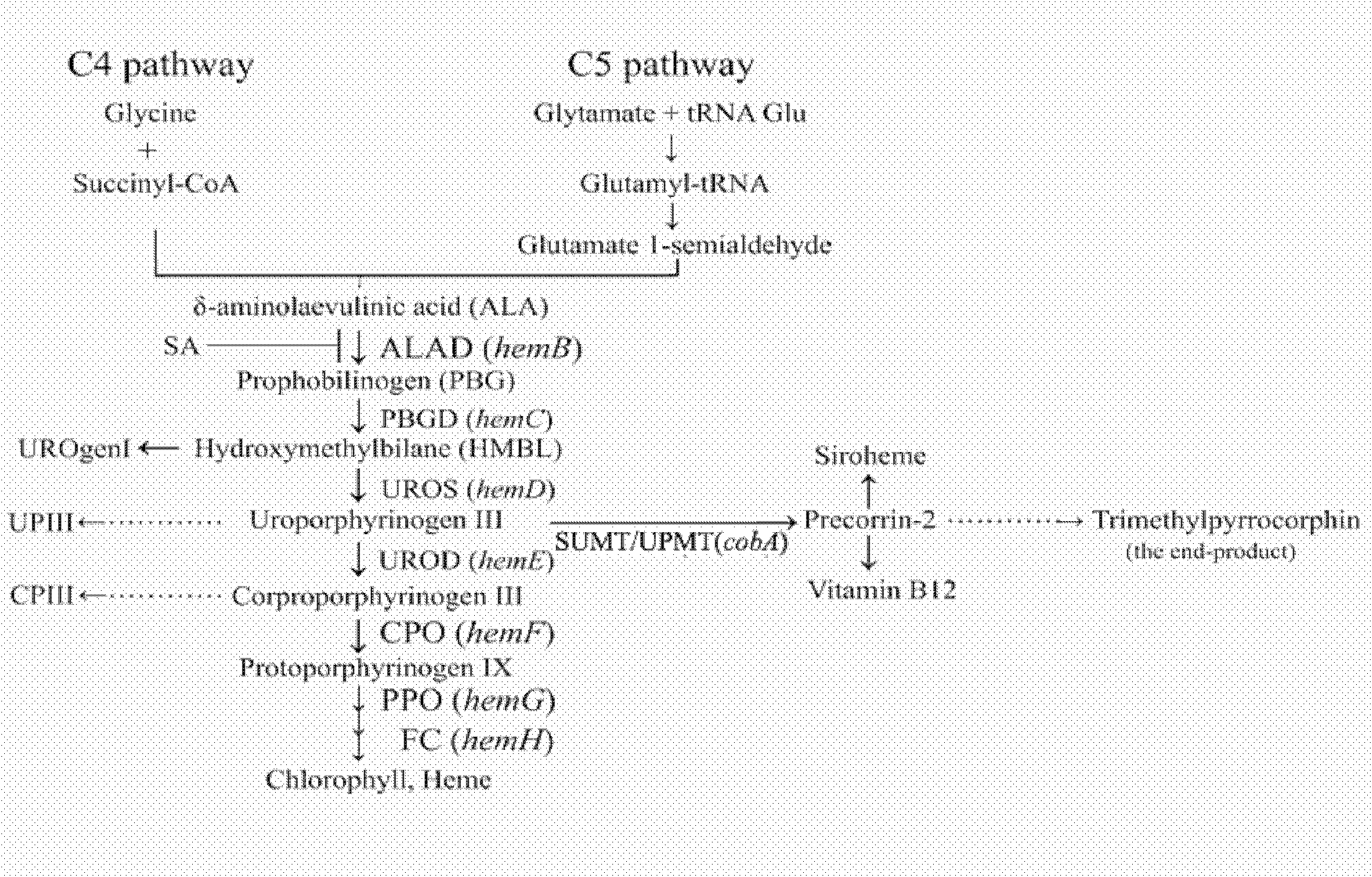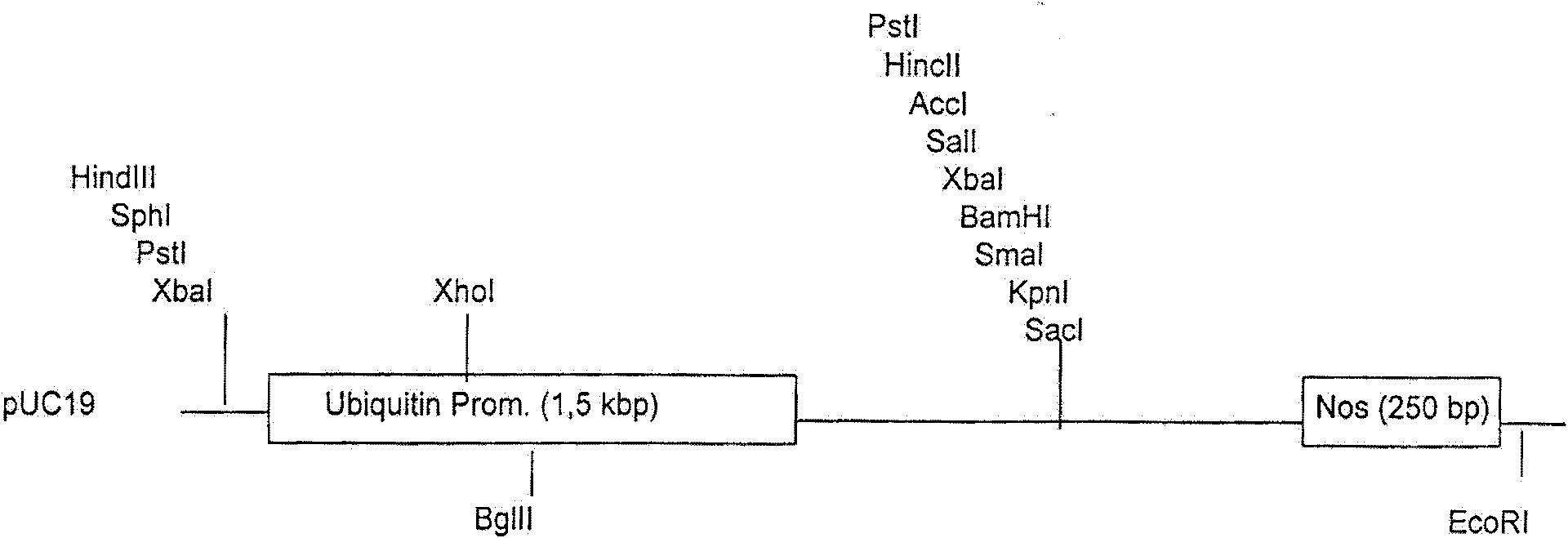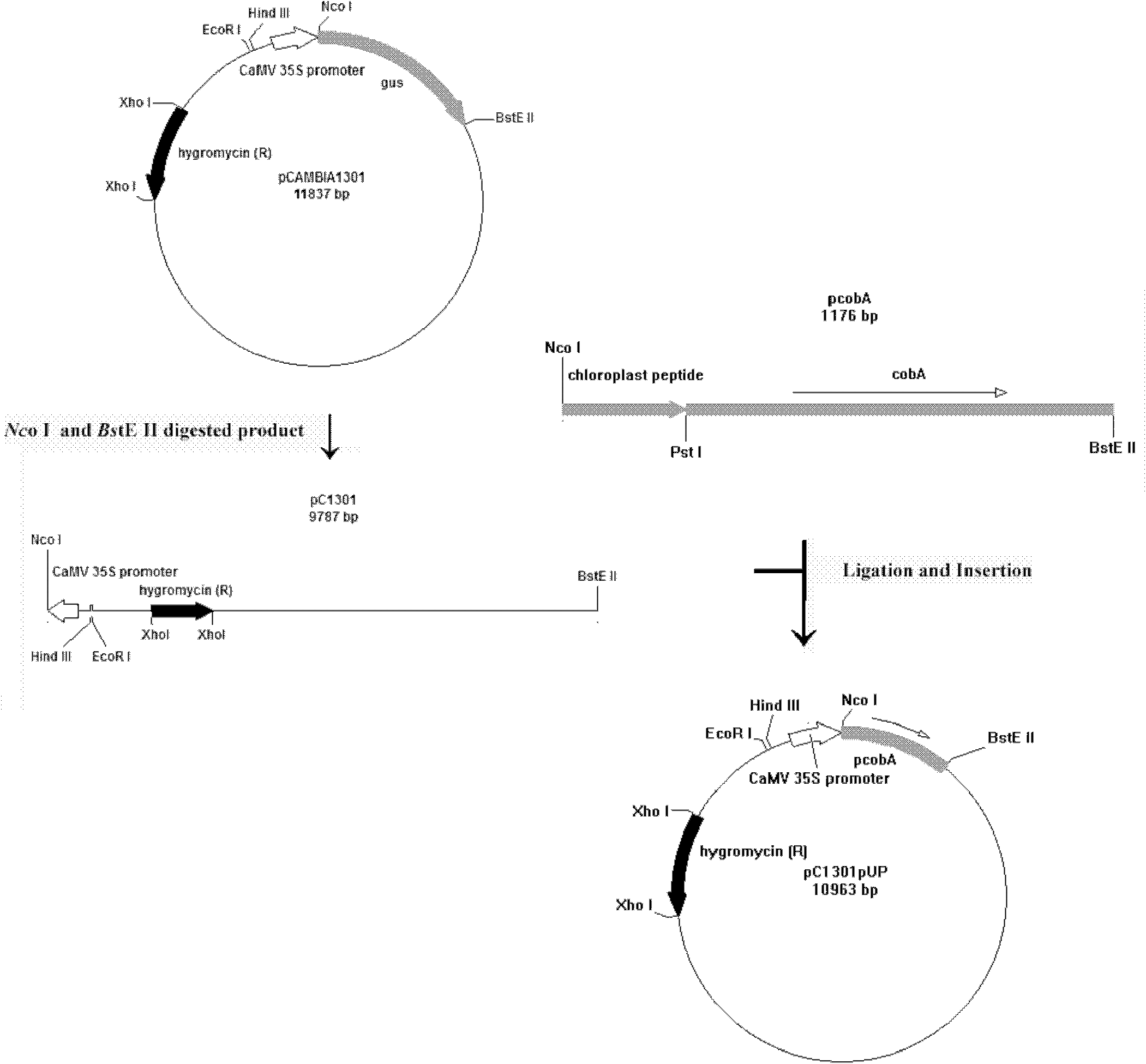A plant transformation vector and its construction method and application
A vector and plant technology, applied in the field of plant transformation vectors and their construction, can solve the problems of no literature and patent reports, poisoning human nerves, and not easy to degrade, etc., achieve less heat production, less damage to cells and tissues, and increase expression Effect
- Summary
- Abstract
- Description
- Claims
- Application Information
AI Technical Summary
Problems solved by technology
Method used
Image
Examples
Embodiment 1
[0038] Example 1 Construction of pC1301Ubi-ZmpBtAD-pUP vector with red fluorescent protein tracer and novel resistance screening marker.
[0039] 1. Cloning of reporter gene cobA and resistance screening marker alad gene
[0040] 1. Cloning the cobA gene encoding the red fluorescent protein UPMT of barley (Hordeum vulgare)
[0041] (1) Growth and cultivation of barley seedlings
[0042] Select barley (Wanmai No. 1) seeds with uniform size and full grains, sterilize the surface with 10% hydrogen peroxide, and place them in a petri dish with moistened gauze for cultivation. During the cultivation process, 0.1% nitrate solution was periodically sprayed, cultured at a constant temperature of 28° C., and illuminated for 16 hours. Seedlings emerged after about one week of growth.
[0043] (2) Extraction of total RNA from barley young leaves
[0044] When it grows to the three-leaf stage, take 1-2g of fresh leaves. The total RNA of young barley leaves was extracted by Trizol meth...
Embodiment 2
[0088] The acquisition of embodiment 2 escherichia coli transformants
[0089] Preparation of E.coli DH5α / BL21(DE3) Competent Cells:
[0090] (1) Inoculate a single colony of DH5α / BL21(DE3) into 5 mL of LB liquid medium (see Table 2.1) without antibiotics, shake overnight at 37°C;
[0091] (2) Transfer to fresh LB liquid medium according to the amount of 1% (v / v), shake at 37°C to) OD 600 =0.3~0.6;
[0092] (3) Take 50-100mL bacterial liquid and add it to two sterile centrifuge tubes respectively, and place it on ice for 30 minutes;
[0093] (4) Centrifuge at 4°C and 4500rpm for 10 minutes, take the supernatant, and suspend the bacteria in 2 mL of pre-cooled 0.1% CaCl 2 The solution was suspended and placed in an ice bath for 30 min.
[0094] (5) Centrifuge at 4°C and 4500rpm for 10 minutes, discard the supernatant, and suspend the bacteria in 2 mL of pre-cooled 0.1% CaCl 2 solution, then add 300 μl of sterile glycerol, and mix well. Aliquot 50-100μl into 1.5mL EP tubes ...
Embodiment 3
[0100] Transformation of embodiment 3 Agrobacterium tumefaciens
[0101] The plant expression vector constructed in Example 1 can transform rice explants by using methods such as Agrobacterium-mediated method, transient transformation method, particle gun method, electric shock method, pollen tube introduction method or liposome fusion method. Bacteria-mediated method and transient transformation method; the Agrobacterium can be any Agrobacterium tumefaciens or Agrobacterium rhizogenes, and the applicant preferably is Agrobacterium tumefaciens EHA105 and GV3101.
[0102] Preparation of Agrobacterium tumefaciens EHA105 or GV3101 competent cells:
[0103] (1) Pick a single colony of EHA105 or GV3101 from the YEP solid medium (see Table 3.1) plate containing rifampicin (Rif), kanamycin (kana) or gentamicin (Cef), and inoculate it on a plate containing In the YEP liquid medium (according to Table 3.1, without adding agar) of corresponding antibiotics, shake overnight at 200 rpm a...
PUM
 Login to View More
Login to View More Abstract
Description
Claims
Application Information
 Login to View More
Login to View More - R&D
- Intellectual Property
- Life Sciences
- Materials
- Tech Scout
- Unparalleled Data Quality
- Higher Quality Content
- 60% Fewer Hallucinations
Browse by: Latest US Patents, China's latest patents, Technical Efficacy Thesaurus, Application Domain, Technology Topic, Popular Technical Reports.
© 2025 PatSnap. All rights reserved.Legal|Privacy policy|Modern Slavery Act Transparency Statement|Sitemap|About US| Contact US: help@patsnap.com



